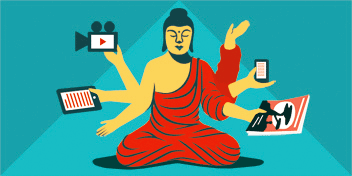In the thread "A question on anger" Jundo said the following, which I have been thinking about for a while (and I don't want to hijack Christopher's thread, so I'm starting a new one).
I find this fascinating. Do you, Jundo, know if these teachers actually saw taking lives as a path or a goal (which it could be considered to be if you take lives in order to prevent a greater loss of life)? I have a hard time imagining support for this stance in any buddhist school (but I could be wrong!).
Isn't the seed of violence always anger? Could you use violence, and still keep a peaceful mind? A loving heart? Wouldn't the karmic effects of this kind of action be horrible (= spawning more aggressive behaviour, more violence, more killing)? Or is it done JUST and ONLY to prevent something worse, thus being a kinda good action, or at least neutral, a 'necessary evil'?
But that will lead us to the following: is ten people worth more than one person? That would be the logical conclusion to the aforementioned "killing in order to save more people".
These are very difficult questions. May I ask for oyour opinions on this matter?
Originally posted by Jundo
Isn't the seed of violence always anger? Could you use violence, and still keep a peaceful mind? A loving heart? Wouldn't the karmic effects of this kind of action be horrible (= spawning more aggressive behaviour, more violence, more killing)? Or is it done JUST and ONLY to prevent something worse, thus being a kinda good action, or at least neutral, a 'necessary evil'?
But that will lead us to the following: is ten people worth more than one person? That would be the logical conclusion to the aforementioned "killing in order to save more people".
These are very difficult questions. May I ask for oyour opinions on this matter?






Comment